GwinnettForum | Number 21.68 | Sept. 3, 2021
TO CELEBRATE THE 150th YEAR of its founding, the Duluth First United Methodist Church will on September 19 gather to mark the occasion. Church Historian Pete Fleming has compiled a 456 page history of the church, which will soon be available. For more details, see Upcoming below.
 The Best Festival in the Southeast (SFEA 2016) is Duluth Fall Festival! It is completely volunteer- run with more than 300 arts and crafts, food and sponsor booths, two music stages, Tailgate Central, and much more, so we have something for everyone. Catch candy at the opening parade Saturday and stay for the fun. Proceeds benefit Downtown Duluth. duluthfallfestival.org.
The Best Festival in the Southeast (SFEA 2016) is Duluth Fall Festival! It is completely volunteer- run with more than 300 arts and crafts, food and sponsor booths, two music stages, Tailgate Central, and much more, so we have something for everyone. Catch candy at the opening parade Saturday and stay for the fun. Proceeds benefit Downtown Duluth. duluthfallfestival.org.
TODAY’S FOCUS: Endless water wars have Corps of Engineers as continuing factor
EEB PERSPECTIVE: Thank you, Mr. President, for getting our troops out of Afghanistan
SPOTLIGHT: Georgia Banking Company
FEEDBACK: Three short letters talk of different views
UPCOMING: Duluth First United Methodists to mark 150th anniversary
NOTABLE: Lots of curtains about to rise at Aurora Theatre in the fall
RECOMMENDED: Epidemics and Society by Frank M. Snowden
GEORGIA TIDBIT: Several utopian reform colonies once organized in Georgia
MYSTERY PHOTO: Overhanging trees abound in this Mystery Photo
LAGNIAPPE: New floral designs decorate wall in Suwanee
CALENDAR: Works from permanent collection on display at Hudgens Art Center
Endless water wars have Corps of Engineers as continuing factor
(Editor’s note: the following comments first appeared in the August 30 edition of the online The Saporta Report, and is reprinted here with permission. Because of the importance of the story to Gwinnett, it runs longer than usual. —eeb
By David Pendered
ATLANTA, Ga. | The U.S. Army Corps of Engineers was a factor but not a party in the U.S. Supreme Court’s ruling in Georgia’s favor in the water war with Florida. The Corps isn’t in the clear and the war isn’t thought to be over.
In a case distinct from the Supreme Court’s April 1 ruling for Georgia in the lawsuit brought in 2013 by Florida, the Corps has been sued by Alabama and three environmental groups for its management of the Apalachicola-Chattahoochee-Flint River Basin. Alabama’s interest is 2,800 square miles of the basin within its borders. Florida’s interest is the ecosystem around the Apalachicola Bay.
A federal court in Atlanta issued a ruling Aug. 11 in favor of the corps. An expected appeal, or a new lawsuit, is part of the reason for the $3.9 million fund for research and legal affairs being assembled by metro water utilities and the Atlanta Regional Commission. The fund has operated continuously since it was established in 1992 to protect the region’s interest in the ACF basin.
U.S. District Judge Thomas Thrash determined the corps had operated properly in adopting a water management manual that seeks to balance water usage in the basin through the five dams and reservoirs the corps controls. Significantly, the judge observed the decades of debate over water usage should end.
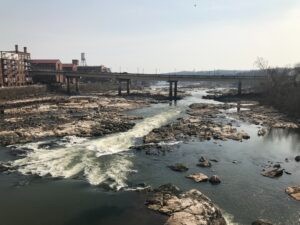
The U.S. Army Corps of Engineers controls the amount of water flowing over the rock outcroppings in front of the Columbus warehouse district along the Chattahoochee River. (Photo by David Pendered)
Thrash’s conclusion addresses multiple levels of concerns that have developed over decades about a waterway that begins as a spring near Jacks Knob, in the Blue Ridge Mountains of Union County. Writing about the manual the corps adopted in 2017 to manage the basin, Thrash wrote:
- “The ACF Basin Master Water Control Manual Update assures a dependable supply of water from Lake Lanier and the Chattahoochee River to the Atlanta Metropolitan region through the year 2050. It does so without significant sacrifices to environmental standards, and recognizes the need to maintain other uses of the ACF system such as flood control, hydropower generation, fish and wildlife conservation, navigation and recreation.
- “The effect upon the Apalachicola River and Bay will be negligible. The decision was not arbitrary or capricious. The Plaintiffs have not met their burden of showing that this delicate balance should be upset. In the absence of an agreement among Georgia, Florida and Alabama, there is no better alternative.
- “Decades of deferral and delay due to litigation should end.”
The importance of the corps and its operating manual was underscored in a report issued in February 2017 by a special master appointed by the U.S. Supreme Court to advise on the Florida case. The special master noted the update to a manual that dated to 1958 was in draft form at that point. The corps adopted the update in March 2017 and lawsuits challenging the new manual were filed in April l. The plaintiff in one lawsuit is Alabama, and in the other it’s the National Wildlife Federation, Florida Wildlife Federation, and Apalachicola Bay and River Keeper’s. Thrash consolidated the cases for his ruling.
The special master’s job was to advise justices of whether Florida had proven its allegations that Georgia’s overconsumption of water from the basin had reduced flow into Florida, thus harming the ecosystem around Apalachicola Bay.
Second, Lancaster determined that the corps is responsible for the amount of water flow into Florida. He noted that no matter how much or how little water flows in the basin, the corps controls the amount of water that reaches Florida because the corps controls the dams. However, Lancaster noted, the corps can’t be part of any solution because Florida didn’t make the corps a party to the lawsuit.
Lancaster discussed the corps’ management of river flow in 22 pages of his 70-page report. Among the observations:
- at trial suggests that the Corps’ reservoir operations are a significant, and perhaps the primary, factor influencing the amount of streamflow crossing the state line during times of drought and low flows….
- “[I]t appears likely that ensuring relief for Florida during these times [of low river flow] would require modification of the rules governing the Corps’ reservoir operations and, hence, active participation by the Corps in this proceeding.”
After reviewing Lancaster’s report, justices decided Lancaster had taken too narrow a view of Florida’s claims and appointed a second special master to continue the review. Special Master Paul Kelly, Jr., who’s a U.S. Circuit Judge in New Mexico, noted that the Supreme Court didn’t question Lancaster’s findings on the corps and, thus, he carried them forward into his 2019 report.
The Supreme Court’s ruling noted the importance of the corps in regulating water flow into Florida. But, as did Lancaster, the court observed the corps is not a party to the case:
- “Many factors influence Apalachicola River flows, including precipitation, air temperature, and Georgia’s upstream consumption of Basin waters. The U. S. Army Corps of Engineers also plays an important role. The Corps regulates Apalachicola flows by storing water in, and releasing water from, its network of reservoirs in the Basin….
- “Florida asserts that Georgia’s overconsumption of Basin waters causes sustained low flows in the Apalachicola River, which in turn harm its oyster fisheries and river eco- system. As a remedy, Florida seeks an order requiring Georgia to reduce its consumption of Basin waters. Florida does not seek relief against the Corps….
- “Considering the record as a whole, Florida has not shown that it is ‘highly probable’ that Georgia’s alleged overconsumption played more than a trivial role in the collapse of Florida’s oyster fisheries.”
- Have a comment? Send to: elliott@brack.net
Thank you, Mr. President, for getting our troops out of Afghanistan
By Elliott Brack
Editor and Publisher, GwinnettForum
SEPT. 3, 2021 | Thank you, President Biden. Thank you for taking the bold steps in leadership in getting out the last of our military troops entirely out of Afghanistan by your own August 31 deadline. You did what three other presidents did not or would not do. You also completed this evacuation in the face of unwarranted criticism of your actions.
![]() Just in a few days, some 122,000 people have been airlifted out of Kabul, in the face of threats and confusion caused by the Taliban. This was a major successful military withdrawal. We need to recognize that in itself this was a dramatic victory, completing it against all odds. This gigantic rescue mission will go down as marking one of our nation’s most dramatically successful and humanitarian efforts.
Just in a few days, some 122,000 people have been airlifted out of Kabul, in the face of threats and confusion caused by the Taliban. This was a major successful military withdrawal. We need to recognize that in itself this was a dramatic victory, completing it against all odds. This gigantic rescue mission will go down as marking one of our nation’s most dramatically successful and humanitarian efforts.
No longer will the mothers and fathers of American fighting women and men be worried about their offspring caught up in a useless war with which we should never have been involved. Though in the last days, 13 Marines died in this final deadly firefight at the airport, we are pleased that no longer will our nation be routinely risking other lives halfway around the world in a doomed cause.
In years to come, the United States will remember August 31 as a day when the United States came to its senses and got out of Afghanistan, after 20 years of continually being thwarted by forces out of our control. We didn’t lose an undeclared war, as much as we found ourselves in the middle of one in a region where our neighbor has been fighting for centuries. And we stepped into this fray thinking we could remove a threat to our country and reform the world. No nation could have, as Russia had already found out. It might be that the people of Afghanistan are incapable of being a united nation.
Give the United States credit for one thing: our military leadership found ways to continually get the funding required. We certainly poured enough money in, only to find it was wasted time and time again. Even had we doubled the amount of our financial resources during the 20 years, the long-term outcome would have been the same. Note that our country’s Congressional leaders had little to say about continuing the effort, while the military constantly made it clear more money was needed at every turn. Three presidents promulgated its continuation and backed more dollars for the cause.
Perhaps one of the most poignant stories of recent days showed the leader of our last troops in Afghanistan, Maj. Gen. Chris Donahue, commander of the 82nd Airborne Division, walking to board the Boeing C-17 airplane as the last American military person to depart the country. He was performing this duty in the best tradition of a military commander, much as a Naval commander is the last to leave an abandoned ship. His action made us realize how proud we were of him and all the troops who have been to Afghanistan, and especially to the many who took their last breath there.
Thank you, Joe Biden, for what no one else has done, your determined action to get us out of Afghanistan.
- Have a comment? Send to: elliott@brack.net
Georgia Banking Company
 The public spiritedness of our sponsors allows us to bring GwinnettForum.com to you at no cost to readers. Today’s featured sponsor is Georgia Banking Company, which is a full-service, commercial community bank headquartered in Atlanta, Georgia. The team at GBC understands the needs of growing businesses and is focused on delivering an exceptional service experience with innovative technology and products. Led by fifth generation banker, CEO Bartow Morgan, Jr., GBC has assets of $850 million with offices in Midtown Atlanta and Griffin and will soon be expanding to serve customers in Alpharetta, Duluth, Lawrenceville, and Marietta. GBC’s team of proven relationship managers offer critical thinking to identify solutions for complex business needs and a deep understanding of customers’ unique businesses, opportunities, and goals. Visit www.geobanking.com to learn more.
The public spiritedness of our sponsors allows us to bring GwinnettForum.com to you at no cost to readers. Today’s featured sponsor is Georgia Banking Company, which is a full-service, commercial community bank headquartered in Atlanta, Georgia. The team at GBC understands the needs of growing businesses and is focused on delivering an exceptional service experience with innovative technology and products. Led by fifth generation banker, CEO Bartow Morgan, Jr., GBC has assets of $850 million with offices in Midtown Atlanta and Griffin and will soon be expanding to serve customers in Alpharetta, Duluth, Lawrenceville, and Marietta. GBC’s team of proven relationship managers offer critical thinking to identify solutions for complex business needs and a deep understanding of customers’ unique businesses, opportunities, and goals. Visit www.geobanking.com to learn more.
- For a list of other sponsors of this forum, click here.
Allegations not absurd until disproved in court
Editor, the Forum:
![]() Jack Bernard says: “Although there were many allegations, none have been proven in court. This is true despite the fact that many GOP leaders are repeating absurd fraud claims as though they were proven facts.”
Jack Bernard says: “Although there were many allegations, none have been proven in court. This is true despite the fact that many GOP leaders are repeating absurd fraud claims as though they were proven facts.”
I agree allegations should be proven in court. Until then, the fraud claims cannot be labeled “absurd” until disproved in court. So, let’s do a forensic audit then take it to court.
— Ron Buice, Buford
Laughed and laughed at key fob story; now another battery
Editor, the Forum:
I laughed and laughed about your key fob. For the last week I have been meaning to replace my battery. I just switched to the extra key fob. Now, after reading your story, I think I’ll head on over to my favorite battery place.
— Mickey Merkel, Berkeley Lake
Feels giving voters right to choose is best way
Editor, the Forum:
I totally agree with Jack Bernard. Let’s give voters the right to choose. Let’s not make it harder for citizens to vote.
— Barbara Knox Luckhurst, Duluth
Send us your thoughts: We encourage you to send us your letters and thoughts on issues raised in GwinnettForum. Please limit comments to 300 words, and include your hometown. The views of letters are the opinion of the contributor. We reserve the right to edit for clarity and length. Send feedback and letters to: elliott@brack.net.
Duluth First United Methodists to mark 150th anniversary on Sept. 19
Marking its 150th year as a ministry to Duluth, the First United Methodist Church will celebrate this occasion on Sunday, September 19 at 10:30 a.m. This celebration, led by our 60th senior pastor, the Rev. Terry Tippens, will include a message brought by North Georgia Conference Bishop Sue Haupert-Johnson, musical presentations by the church chancel choir and instrumentalists, and other liturgical events.
The celebration will also include a self-guided tour of the 90,000 square-foot campus of the church featuring many historical artifacts. Lunch will be available through four food trucks parked around the campus. Souvenirs of the 150th celebration will be available for purchase, including Ann Parsons Odum’s prints of the first three church buildings.
 Church Historian Pete Fleming will be available to sign copies of the Duluth First Methodist Church sesquicentennial 456-page history book, priced at $35. Following the events, a group picture from a drone will be taken of all participants gathered in front of the main sanctuary.
Church Historian Pete Fleming will be available to sign copies of the Duluth First Methodist Church sesquicentennial 456-page history book, priced at $35. Following the events, a group picture from a drone will be taken of all participants gathered in front of the main sanctuary.
This event coincides with many other firsts in this area’s history. The City of Duluth received its present unofficial name in 1871, although the name did not become official until 1876. Previously, it was known as Howell’s Crossroad.
The railroad came to Duluth in 1871 as steam locomotives of the Carolina and Piedmont Air-Line Railroad began rumbling down the new track. Georgia had been the last state readmitted to the Union in 1870 after two earlier efforts failed, and 1871 marked a sort of “new beginning” for Duluth, even though many of its citizens, including those formerly enslaved, would experience a bleak period. The new church began with the new city in a moment of peril and promise for the uncertain future. The successes and setbacks of each in the ensuing 150 years parallels much of the history of the nation and may be seen in the church’s sesquicentennial history.
The events of September 19 are open to the people of Gwinnett and surrounding areas, and all are invited to celebrate with the church members.
Suwanee to mark 20th anniversary of 9/11 on Sept. 11 at 6 p.m.
In observance of the 20th anniversary of the terrorist attacks of 9/11, the City of Suwanee will pay homage to the victims and heroes of this event at a remembrance ceremony on Saturday, September 11, 2021 at 6 p.m. The date will be marked by comments from Mayor Jimmy Burnette and guest speakers directly affected by the events of September 11, 2001, as well as first responders represented by Gwinnett Fire, Suwanee Police. There will also be a flag and wreath-laying ceremony.
The will take place at Town Center Park around the Remembrance Plaza, located near the corner of Buford Highway and Lawrenceville-Suwanee Road. Guests are asked to bring their own chairs and stand for the brief ceremony and remarks. They are also welcome to bring flowers, small flags, or other commemorative items.
The City of Suwanee is honored to be the home of one of the largest pieces of the World Trade Center tower steel remnants, as well as a memorial that includes a conical sculpture featuring the lower Manhattan cityscape and a timeline. For more information regarding the 9/11 Remembrance ceremony, please contact Events & Outreach Manager Amy Doherty at 770-904-3387.
Lots of curtains soon rising at Aurora Theatre as fall begins
As the leaves begin to fall, the curtain will rise on a host of entertaining outings for all ages at Aurora Theatre! Check these out:
- In September, Aurora Children’s Playhouse returns to the Aurora Mainstage for the first time since March of 2020.
- Love to laugh? Patrons are encouraged to double down on comedy with Brew Ha Ha in the Biergarten – featuring Dan Mengini.
- Attend Aurora Comedy Nights under the stars with national touring sensation Mike Speenburg.
- Atlanta Latin Jazz Orchestra creates a magical night of music and Alma Mexicana Danza Folklórica with a show just for the youngsters to celebrate Hispanic Heritage Month.
- Additionally, The Aurora Welcomes Series hosts an engaging new show, I Feel Good: A James Brown Tribute, on the Lawrenceville Arts Center Courtyard stage.
- For more information on programming, please call the Box Office at 678-226-6222 or visit auroratheatre.com.
Snellville controller wins award for financial reporting
Snellville City Controller Jan Burke has been awarded a prestigious financial reporting award for the seventh time in eight years. Burke was given the Certificate of Achievement for Excellence in Financial Reporting by the Government Finance Officers Association of the United States and Canada for her comprehensive annual financial report. City Manager Butch Sanders says: ““This award, which takes an awful lot of extra time and effort, is indicative of Jan’s work ethic and abilities.”
- Have a comment? Send to: elliott@brack.net
Epidemics and Society by Frank M. Snowden
![]() From Raleigh Perry, Buford: Over the years there have been a large number of epidemics and each one made changes to what was considered normal. The author is a professor of History of Medicine at Yale University and has written several books on epidemics. Ever since COVID-19 evolved more than a year ago, there have been questions about when we will return to normal. After reading this book, expect things to be different. I have read about epidemics for years. The first was a book on the Yellow Fever plague in Philadelphia in 1793. There were Yellow Fever outbreaks every year but 1793 was, by far, the worst. Most interesting is the Plague in Britain, starting in 1350. It was an indiscriminate killer, taking out rich and poor alike. Positive results can result from such events. I would expect that matters will be very different when the current pandemic is under control.”= (The full title is Epidemics and Society, from the Black Death to the Present.)
From Raleigh Perry, Buford: Over the years there have been a large number of epidemics and each one made changes to what was considered normal. The author is a professor of History of Medicine at Yale University and has written several books on epidemics. Ever since COVID-19 evolved more than a year ago, there have been questions about when we will return to normal. After reading this book, expect things to be different. I have read about epidemics for years. The first was a book on the Yellow Fever plague in Philadelphia in 1793. There were Yellow Fever outbreaks every year but 1793 was, by far, the worst. Most interesting is the Plague in Britain, starting in 1350. It was an indiscriminate killer, taking out rich and poor alike. Positive results can result from such events. I would expect that matters will be very different when the current pandemic is under control.”= (The full title is Epidemics and Society, from the Black Death to the Present.)
An invitation: what books, restaurants, movies or web sites have you enjoyed recently? Send us your recent selection, along with a short paragraph (150 words) as to why you liked this, plus what you plan to visit or read next. Send to: elliott@brack.net
Several utopian reform colonies once organized in Georgia
Religious, political, and economic utopianism arose in America during the late 19th century, at a time when the nation was plagued with economic, social, and cultural problems. Utopian reformers organized communal experiments promoting cooperative and equitable living as a response to the rise of industrial capitalism. In contrast to the utopian movements of the antebellum years, which were mostly confined to the Northeast and Great Lakes regions, the utopian revival after the Civil War (1861-65) was largely centered in the South, which offered a mild climate, cheap land and building materials, and transportation links. Between 1880 and 1960 Georgia was home to several utopian communities.
 In 1896 a group of Christian socialists formed the Christian Commonwealth Colony in Muscogee County. Organized by George Howard Gibson of the Christian Corporation in Nebraska and Ralph Albertson of the Willard Colony in North Carolina, the members were drawn together by a sense of Christian brotherhood, a belief in practical Christianity, and a desire to live their convictions fully in a communal setting. The group purchased a failing cotton plantation near Columbus in November 1896, and by 1899 membership had reached 95. Although their cotton mill and towel production venture failed, the colonists successfully printed a periodical called The Social Gospel, which reached at least 2,000 readers. This was not enough, however, to rescue the colony from abysmal living conditions. By 1900, after a typhoid epidemic killed several members, the property was sold, and the proceeds were used to settle debts.
In 1896 a group of Christian socialists formed the Christian Commonwealth Colony in Muscogee County. Organized by George Howard Gibson of the Christian Corporation in Nebraska and Ralph Albertson of the Willard Colony in North Carolina, the members were drawn together by a sense of Christian brotherhood, a belief in practical Christianity, and a desire to live their convictions fully in a communal setting. The group purchased a failing cotton plantation near Columbus in November 1896, and by 1899 membership had reached 95. Although their cotton mill and towel production venture failed, the colonists successfully printed a periodical called The Social Gospel, which reached at least 2,000 readers. This was not enough, however, to rescue the colony from abysmal living conditions. By 1900, after a typhoid epidemic killed several members, the property was sold, and the proceeds were used to settle debts.
The Duke Colony was located in Ware County, about eight miles southwest of Waycross, in a small sawmill town at the edge of the Okefenokee Swamp. It was founded in 1898 when the American Settlers Association, a group of farmers from Ohio and Indiana, moved to the southeast Georgia site and built homes and farms. The colonists individually owned property, but they farmed the 760 acres of land cooperatively.
In 1899 the Duke Colony was joined by more than 100 families, including 240 former members of the recently dissolved Ruskin Colony in Dickson County, Tenn. Ruskin colonies, which were founded on the ideas of the English social reformer John Ruskin, were attempted in a number of places in America and Europe. The Duke Colony was incorporated under Georgia law as the Ruskin Commonwealth on October 9, 1899, with an incorporation petition stating that the charter request was intended “to establish a community of people on a co-operative basis of Industrial Brotherhood.”
Members of the Ruskin Commonwealth were required to become shareholders in the endeavor, and an elected board of directors ran the colony. At first the new town of Ruskin flourished economically, even publishing its own newspaper, the Coming Nation. However, bad winter weather along with sickness, several damaging fires, and mismanagement doomed the colony by early 1902. Some members stayed, some moved to form a new Ruskin colony in Florida, and others returned north.
In 1898 a group of Ohio Shakers, members of the United Society of Believers in the Second Appearance of Christ, purchased land in Brunswick, the seat of Glynn County, and in White Oak, in Camden County. The colony at White Oak became the headquarters of the Georgia Shakers. Although they succeeded in farming, the Shakers could not attract converts, and the colony failed by 1902.
The Macedonia Cooperative Community was founded in 1937 by liberal southern educator Morris Mitchell in Habersham County, near Clarkesville. It was created as a privately funded version of the federal community resettlement program that taught cooperative living to farmers. Members were shareholders and had equal say in making decisions for the secular community, which was committed to communal living, spiritual searching, and pacifism. A successful dairy herd and Community Playthings, a children’s wooden toy and furniture business, ensured economic survival, but in 1957 the community disbanded when most of its members joined the German-founded, evangelical Society of Brothers communities in New York and Pennsylvania. Community Playthings eventually came under the control of the Society of Brothers, which still runs the enterprise today.
- To view the Georgia Encyclopedia article online, go to https://www.georgiaencyclopedia.org
Overhanging trees abound in this Mystery Photo
Today’s Mystery Photo contains little in the way of clues, unless you consider an unpaved road, overhanging trees and an entryway at the end of the road as clues. Figure out where this photograph was taken and send your idea to elliott@brack.net, including your hometown.
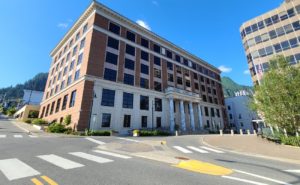 Only three people recognized the last Mystery Photo, that of the Alaskan capitol building in Juneau, Alaska. It was sent in by Rob Ponder of Duluth.
Only three people recognized the last Mystery Photo, that of the Alaskan capitol building in Juneau, Alaska. It was sent in by Rob Ponder of Duluth.
Recognizing the capitol were Susan McBrayer, Sugar Hill; George Graf, Palmyra, Va.; and Allan Peel of San Antonio, Tex. Peel told us: “Opened on Valentine’s Day, February 14, 1931, well before Alaska became a state, the Alaska State Capitol building in Juneau, was originally called the Federal and Territorial Building. It was originally the home of a federal courthouse and post office, until 1959, when Alaska became the 49th and largest state of the USA. Since then, the building has been the home of the chambers of the Alaska Legislature, as well as the offices of the governor and the lieutenant governor of Alaska.
- Before becoming a state, Juneau was the capital city of the Alaska Territory from 1912 to 1959, during which time the Legislature had to meet in rented rooms around the city.
- The Alaska State Capitol building does not have a dome. While most capitols have some form of a dome, Alaska is one of 11 state capitols that do not feature a dome. Other states that do not have a dome on their state capitol building include Florida, Hawaii, Louisiana, New Mexico, New York, North Dakota, Ohio, Oregon, Tennessee, and Virginia.
- The Alaska State Capitol also has a full-sized replica of the original liberty bell. While interesting, this is really not unique. In fact, all 50 state capitols have a copy of the Liberty Bell! Who knew?”
 Artists have been busy in downtown Suwanee, decorating this wall with these floral designs facing a highway in the city. Roving Photographer Frank Sharp took this photograph when in Suwanee recently.
Artists have been busy in downtown Suwanee, decorating this wall with these floral designs facing a highway in the city. Roving Photographer Frank Sharp took this photograph when in Suwanee recently.
Selected works from The Hudgens Center for Art and Learning’s permanent collection is on view through October 30, 2021. As the visual arts hub of Gwinnett County, The Hudgens Center for Art and Learning boasts a distinguished permanent collection with works by Picasso, Miro, Kandinsky, Lichtenstein, and others. Other exhibits now showing include work From the 2020-2021 smART honors students, through October 16; Resilience in Times of Resistance: The Work of Catalina Gomez- Beuth, through October 30; Hudgens Prize Retrospective, also through October 30.
GwinnettForum is provided to you at no charge every Tuesday and Friday.
Meet our team
- Editor and publisher: Elliott Brack, 770-840-1003
- Managing editor: Betsy Brack
- Roving photographer: Frank Sharp
- Contributing columnist: Jack Bernard
- Contributing columnist: Debra Houston
- Contributing columnist: George Wilson
More
- Mailing address: P.O. Box 1365, Norcross, Ga. 30091
- Work with us: If you would like to serve as an underwriter, click here to learn more.
Subscriptions to GwinnettForum are free.
- Click to subscribe.
- Unsubscribe. We hope you’ll keep receiving the great news and information from GwinnettForum, but if you need to unsubscribe, go to this page and unsubscribe in the appropriate box.
© 2021, Gwinnett Forum.com. Gwinnett Forum is an online community commentary for exploring pragmatic and sensible social, political and economic approaches to improve life in Gwinnett County, Ga. USA.


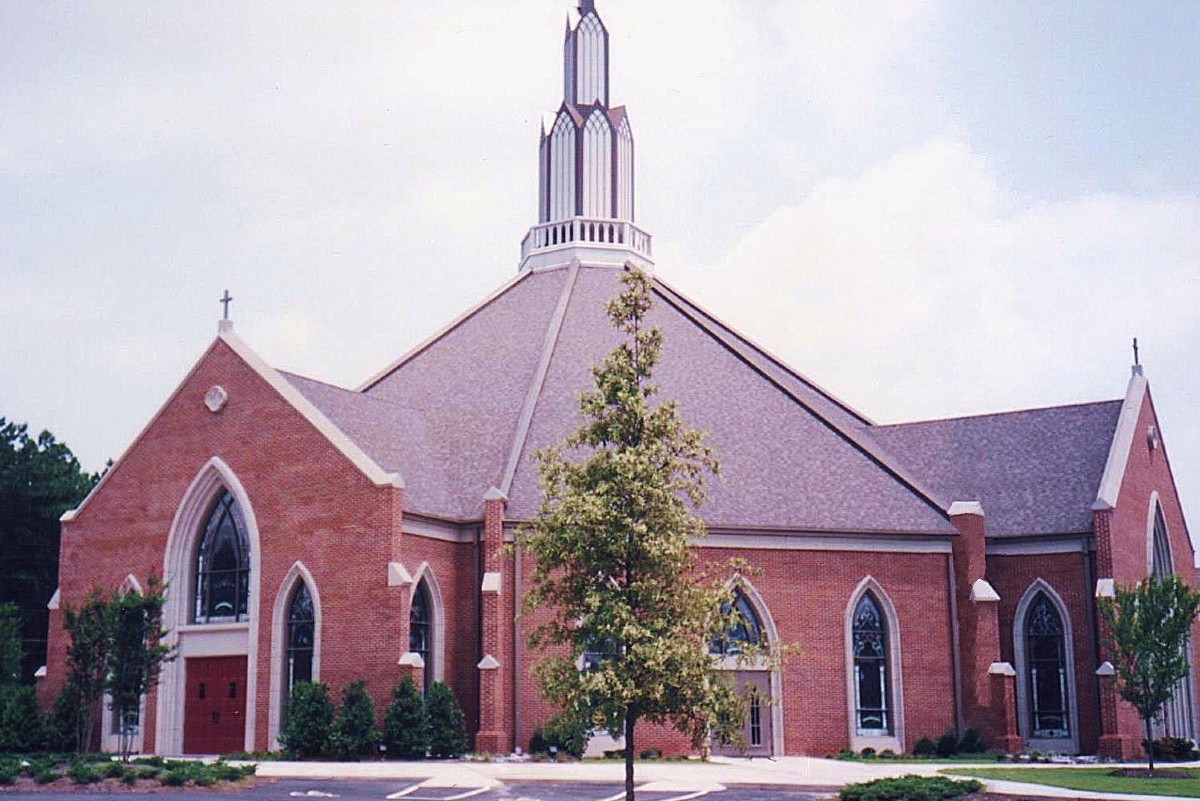




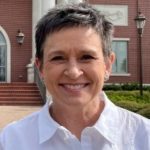
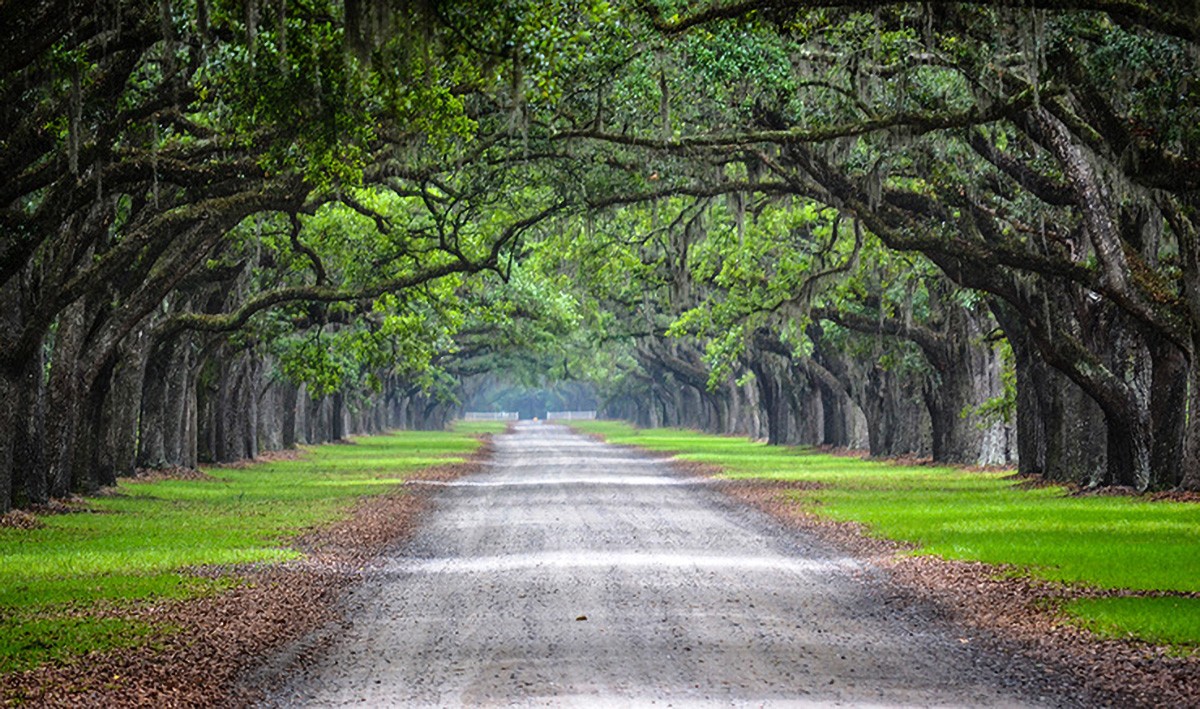








Follow Us